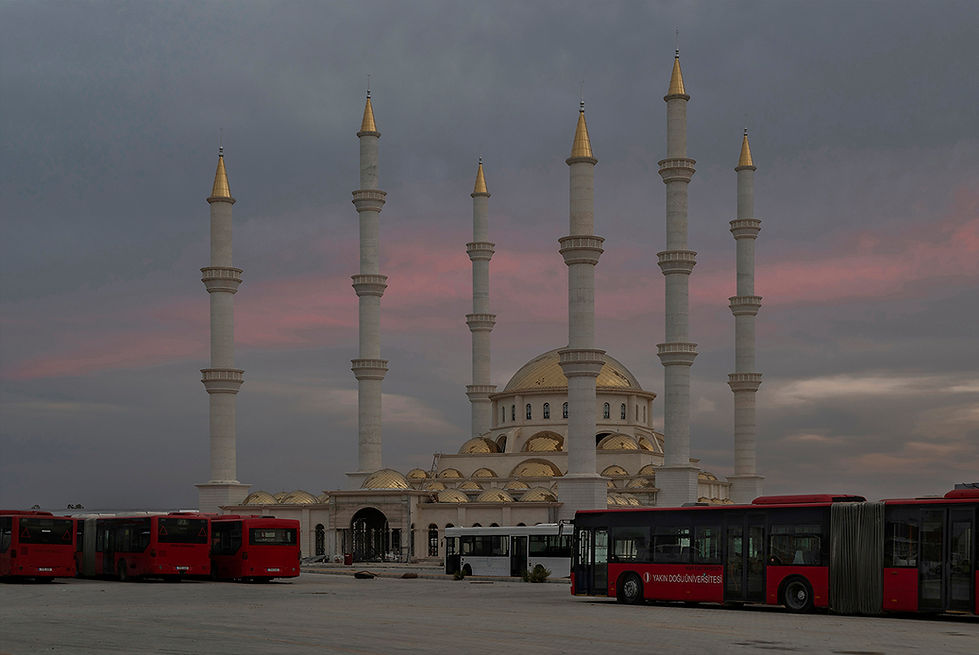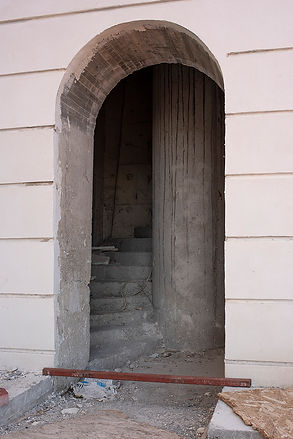The Mosque
Northern Cyprus
2018/2022/2024
Returning to Cyprus for a brief visit one year on from my residency (see Transitions I-IV), I focussed my attention on the mosque that is being constructed on the site of the Near East University on the outskirts of northern Nicosia - The Günsel Mosque. This is the only new 6 minaret mosque outside Turkey apparently, and it is situated only a few miles away from the recently completed Hala Sultan Mosque on the road to Famagusta. The (very) small construction crew on site very kindly allowed me to photograph the building when I visited in 2018, from within the concrete infrastructure that was forming the layout of the interior spaces - a fascinating insight into the configuration of an Islamic place of worship.
Many aspects interest me about this building and it has been fascinating to photograph again in 2022 and 2024 to witness its development and ultimate completion - of a building that contributes to a continued discourse on the island's cultural dichotomy.







2022
After an inevitable break in visits due to COVID-related travel restrictions, a further visit in 2022 sees the mosque much further on in development. The priority in construction has clearly focussed on the exterior presence of the building - the building now rising over the landscape from both near and far.



















2024





